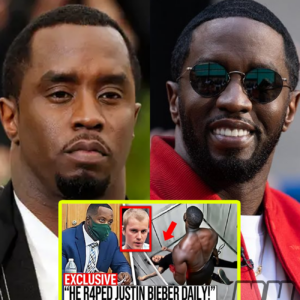The Legal Clash Between Manhattan District Attorney Alvin Bragg and House Judiciary Committee Chairman Jim Jordan

In a recent development that underscores the intense legal and political friction between federal and state jurisdictions, Manhattan District Attorney Alvin Bragg issued a detailed and firm response to a subpoena request from House Judiciary Committee Chairman Jim Jordan. This interaction follows the successful prosecution of former President Donald Trump by the Manhattan District Attorney’s Office, leading to his conviction on 34 felony counts.
The Context of the Conflict
The legal battle between Bragg and Jordan is deeply rooted in the ongoing efforts by MAGA Republicans to challenge the legitimacy and motivations behind various criminal proceedings involving Trump. The House Judiciary Committee, under the leadership of Jim Jordan, has shown a keen interest in what they term “politically motivated prosecutions,” specifically targeting the actions of state and local prosecutors.
Bragg’s Response: A Detailed Breakdown
Bragg’s response, articulated through a letter from Leslie B. Dubeck, General Counsel to the Manhattan District Attorney’s Office, meticulously addresses the issues raised by Jordan. The letter, dated shortly after Jordan’s May 31, 2024, invitation, highlights several key points:
- Commitment to Cooperation: Bragg’s office expresses a willingness to cooperate with the House Judiciary Committee, emphasizing their openness to making the District Attorney available for testimony. However, this is contingent on a mutually agreed-upon date and a clear understanding of the scope of the proposed testimony.
Scheduling Conflicts: The proposed date for the hearing, June 13, 2024, was selected without consulting Bragg’s office, resulting in significant scheduling conflicts. This issue is compounded by the ongoing trial court proceedings in People v. Trump, which are set to continue through July 11, 2024.
Integrity of Legal Proceedings: The letter underscores the need to protect the integrity of ongoing criminal prosecutions and appellate proceedings. Engaging in a public hearing during this sensitive period could potentially jeopardize the fair administration of justice.
Request for Clarification: Bragg’s office requests further engagement with the committee staff to identify a new hearing date and to better understand the scope and purpose of the proposed hearing. This step is critical to ensuring that any cooperation does not interfere with ongoing legal processes.
The Implications of Bragg’s Response
Bragg’s measured response serves multiple purposes. It highlights the legal and procedural constraints that govern state prosecutions and their interactions with federal inquiries. By requesting a more detailed explanation of the committee’s intentions and proposing alternative dates, Bragg positions his office as willing to engage but not at the expense of ongoing legal proceedings.
This approach also shifts the burden back to Jim Jordan and the House Judiciary Committee. They must now clarify their intentions and adjust their demands to accommodate the legal realities outlined by Bragg. This move effectively stalls the committee’s immediate plans and places the onus on them to respond appropriately.
The Broader Political and Legal Landscape
Jim Jordan’s Position and Response
Jim Jordan’s initial letter, dated May 31, 2024, invites Bragg to testify at a hearing titled “Hearing on the Weaponization of the Federal Government.” This framing suggests a predetermined narrative aimed at scrutinizing state and local prosecutors for alleged political motivations. Jordan’s letter emphasizes the need for Bragg’s testimony to examine these actions, particularly focusing on the prosecution of Donald Trump.
However, the letter’s language and framing reveal an inherent bias, as it presupposes the political nature of Bragg’s actions. This preemptive conclusion undermines the neutrality expected in legal and congressional inquiries, aligning the process more with a political maneuver than a fact-finding mission.
Moving Forward: Legal and Political Strategies
As this legal clash unfolds, several potential outcomes and strategies emerge:
- Further Legal Actions: If Jordan decides to pursue further legal actions, such as filing a federal lawsuit to compel Bragg’s testimony, Bragg’s office is prepared to defend its position by highlighting their willingness to cooperate within the bounds of legal propriety and ongoing proceedings.
Public and Political Reactions: The public and political reactions to this confrontation will likely be polarized. Supporters of Bragg will view his response as a defense of legal integrity, while Jordan’s supporters may see it as an attempt to evade scrutiny.
Implications for Future Proceedings: This interaction sets a precedent for future engagements between federal committees and state prosecutors. It underscores the need for clear communication, mutual respect for legal processes, and the importance of protecting ongoing legal proceedings from undue political interference.
Conclusion
The legal standoff between Manhattan District Attorney Alvin Bragg and House Judiciary Committee Chairman Jim Jordan is a microcosm of the larger political and legal battles currently shaping the American landscape. Bragg’s response exemplifies a careful balance between cooperation and the protection of legal integrity, setting the stage for ongoing legal and political maneuvering. As this situation develops, it will undoubtedly continue to draw significant attention and influence the discourse on the intersection of law and politics in the United States.
News
(VIDEO) Celebs that P Diddy EXPLOITED for Cash
P Diddy and the Dark Side of the Entertainment Industry The entertainment industry is no stranger to scandal and controversy, but the recent revelations surrounding P Diddy (Sean Combs) have brought to light a web of disturbing allegations and connections…
(VIDEO) Kevin Hart IN TEARS After New Leaks EXPOSE Him At Diddy’s After Parties!!
Kevin Hart: A Complex Journey Through Fame, Scandal, and Personal Growth Kevin Hart, the renowned comedian and actor, has led a life marked by both incredible professional success and deeply personal scandals. His journey from selling sneakers to becoming one…
(VIDEO) “He Ruined My Life” Former Diddy Employees TEAM UP To EXPOSE Him!
The Dark Side of Fame: Allegations Against Diddy and the Revelations from Former Employees The music industry is often glamorized for its glitz and glamour, but behind the scenes, it can harbor dark secrets and troubling behavior. Recently, Sean “Diddy”…
(VIDEO) “He’s Why Justin Bieber Is DEPRESSED!” Undercover FBI Agent EXPOSES Diddy
The Tumultuous History of Snoop Dogg, P. Diddy, and the East Coast-West Coast Rivalry Hip-hop history is fraught with feuds, friendships, and ever-changing alliances. Central to many of these stories are iconic figures such as Snoop Dogg and P. Diddy…
(VIDEO) “Diddy Did Usher Dirty Forever” Snoop Dogg EXPOSES Sean Combs!
The Tumultuous History of Snoop Dogg, P. Diddy, and the East Coast-West Coast Rivalry Hip-hop history is fraught with feuds, friendships, and ever-changing alliances. Central to many of these stories are iconic figures such as Snoop Dogg and P. Diddy…
(VIDEO) Undercover CIA Agent EXPOSES Diddy & Jay Z!
The Fall of P. Diddy: A Dismantling of Credibility and the Unfolding Legal Crisis Introduction In recent years, Sean “P. Diddy” Combs has found himself at the epicenter of numerous controversies and legal battles that have significantly tarnished his once-polished…
End of content
No more pages to load











